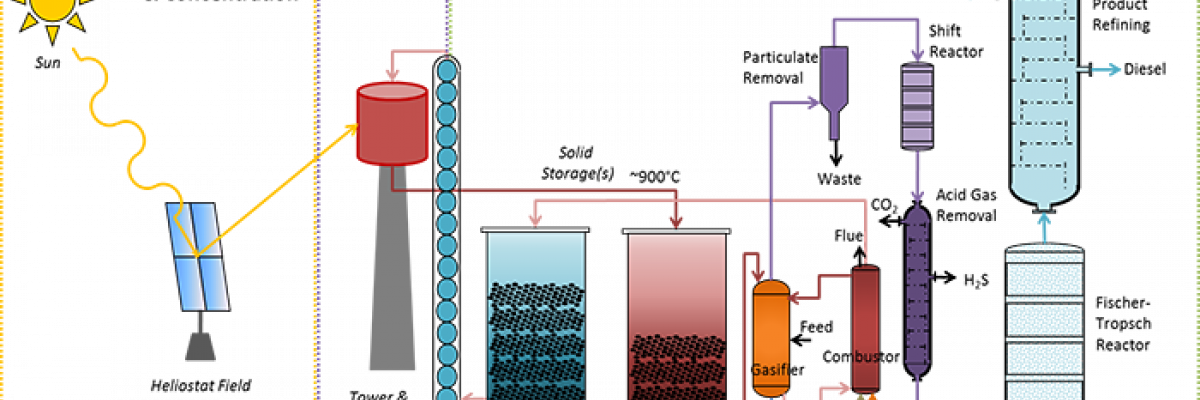Solar Gasification Using Bioresiduals
The gasification of solid feedstocks together with the subsequent Fischer−Tropsch (FT) processing of the syngas is considered to be one of the promising classes of technology to meet the need for sustainable transportation fuels.
This is due to its capacity to process a variety of feedstocks. (e.g., coal, biomass, and petroleum coke), the high quality of the FT product (being free of sulphur, nitrogen, and other contaminants typically found in petroleum products), and its compatibility with the requirements of current vehicles.
Growing interest in biomass
The plentiful reserves of coal and their low cost has historically driven increased international interest in the production of FT liquid (FTL) fuels via gasification of coal. However, the high greenhouse gas (GHG) emissions from coal-to-liquids (CTL) processes are a major barrier to their implementation with the mine-to-tank (MTT) GHG emissions from such systems being typically more than 100% higher than diesel production from tar sands while more than 200% higher than diesel production from conventional mineral crude.
To mitigate these emissions, both carbon capture and storage (CCS) and the cogasification of biomass are being widely studied. Despite challenges these offer potential for carbon negative technologies.
Research opportunities
The steady and sustainable supply of biomass limits the applicability of biomass blending, especially for large scale utilisation, and biomass is also a more expensive feedstock. In this context, interest is growing in a further potential option to reduce the CO2 emissions of CTL processing through the introduction of concentrated solar thermal (CST) into the gasification process.
The CET is leading new research to harness its output by up to two times and improve on the concepts proposed previously.

